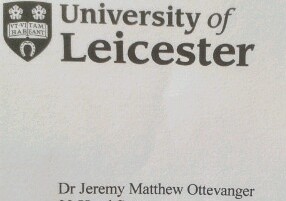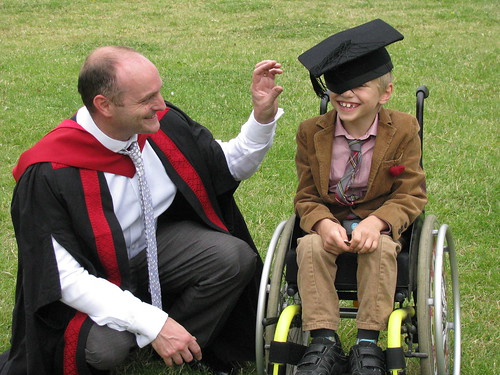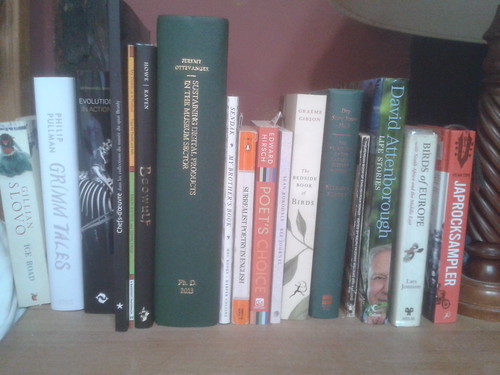
been examined in March, done my amendments (thereby adding another 150 pages...) and made my final submission at the end of May, and had the degree granted on June 1st...

I attended my graduation last week and picked up the certificate in the presence of much of my family - Fiona and the kids, and both our sets of parents, with silly hats playing a notable part...

and I finally - finally! - got to introduce my lot to the famous Ross Parry, and to thank him one last time.
@jottevanger A great day! pic.twitter.com/TnGgf0bAihAnd yesterday when I received my own hard copy of 500+ pages of green hardbound proof of my labours, it really, really felt finished, and ready to sit by my bed and not be read.
— Ross Parry (@rossparry) July 10, 2013

So it's about time that I did something with it. I don't really know what's next, perhaps some conference papers or journal articles, or perhaps I should listen to those suggestions of turning it into a book (which frankly sounds like a lot more work). But I might start by putting bits online here. The whole thesis (minus a couple of redacted interviews) should soon be in the University of Leicester's Research Archive and in EThOS so there's no need to stick the whole thing up independently, but I'm going to start with pasting the abstract here and attaching the short introductory chapter. Then, if you want more, let me know or seek it out. All comments, questions and dinner invitations are very welcome (if unlikely).
Sustaining digital products in the museum sector: Balancing value and resources through good decisions.
Abstract
Digital products are an increasingly significant part of the output of museums in the UK, but the rationale behind them and the long term plans for them are not always clear. This thesis argues that to consider such a digital product to be sustainable, the value it creates must justify the resources it requires. The decisions involved in building and supporting these products affect both the value proposition and the resource requirements, but also reflect the way that museums and their stakeholders see the balance between the two. At the same time, this balance is under the influence of a constantly changing environment. The study proposes a model of sustainability as a cycle of value, resources and decision-making, and three case studies are used to examine how decisions are reached in the face of flux and uncertainty. Some ways in which decisions can be biased or distorted are identified, and finally some approaches are offered for museums seeking to improve the balance of value and resources, and increase the quality of the decisions that underlie them.
Chapter 1 (PDF on Google Drive)
